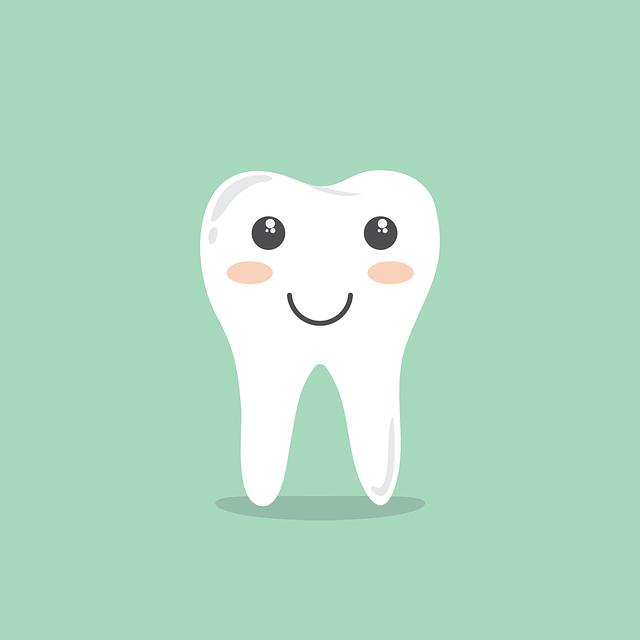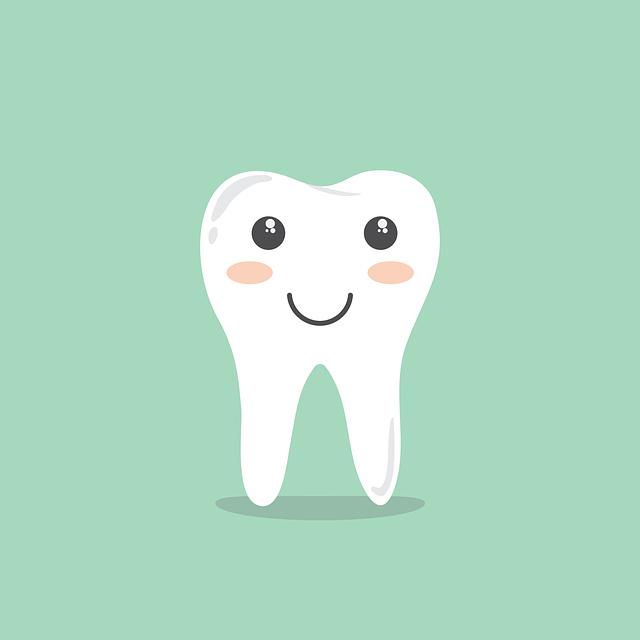Should You Use Salt Water Before or After Brushing Teeth? Dental Care Tips
Are you tired of conflicting advice when it comes to dental care? Well, here’s some good news – we’re about to debunk a common myth and provide you with a clear answer. Today, we tackle the question: should you use salt water before or after brushing your teeth? With a confident and knowledgeable approach, we’ll dive into the science behind dental care, ensuring you make the best decisions for your oral health. Bid farewell to confusion, as we present you with valuable tips for optimal dental care.
1. Understanding the Role of Salt Water in Dental Care: A Comprehensive Guide
In this comprehensive guide, we will delve into the crucial role of salt water in dental care. Salt water, also known as saline solution, has been used for centuries as a natural remedy for a variety of oral health issues. Its benefits extend beyond just soothing a sore throat or cleansing wounds; salt water can also play a significant role in maintaining good dental hygiene and promoting oral health.
Benefits of Salt Water in Dental Care:
- Antimicrobial properties: Salt water acts as a natural disinfectant, helping to kill harmful bacteria and reduce the risk of infections in the mouth.
- Relief from gum inflammation: Rinse with salt water can provide relief from gum inflammation and reduce swelling.
- Wound healing: Salt water helps to accelerate the healing process of oral wounds, such as canker sores or post-dental procedure discomfort.
- Bad breath prevention: Gargling with salt water can help eliminate bacteria that cause bad breath, providing a fresher breath.
How to Use Salt Water for Dental Care:
- Mix half a teaspoon of salt in a glass of warm water until dissolved.
- Swish the solution in your mouth for about 30 seconds, ensuring it reaches all areas of your mouth.
- Spit out the salt water, and avoid swallowing it.
- Repeat this process 2-3 times a day or as directed by your dentist.
By understanding the role of salt water in dental care and incorporating it into your oral hygiene routine, you can harness the natural benefits of this simple yet effective solution. However, it’s essential to remember that salt water rinses are not a substitute for regular brushing, flossing, and professional dental care. Consult with your dentist for personalized advice on incorporating salt water into your dental care routine.

2. The Science Behind Salt Water Rinsing: How it Can Benefit Your Oral Health
Salt water rinsing, also known as saline rinsing, has been used for centuries as a natural remedy for various oral health issues. The science behind this ancient practice lies in the properties of salt and its ability to create a saline solution when dissolved in water. This simple mixture can offer numerous benefits for your oral health, and here’s why:
1. Anti-inflammatory properties: Salt water rinsing can help reduce inflammation in the gums and oral tissues. The salt acts as a natural anti-inflammatory agent, soothing any irritation or swelling that may be present. This can be particularly beneficial for individuals with gum disease or those who have recently undergone dental procedures.
2. Antimicrobial effects: The saline solution created by salt water rinsing has antimicrobial properties that can help kill bacteria and neutralize harmful toxins in the mouth. This can assist in preventing infections, reducing the risk of cavities, and promoting overall oral hygiene.
3. Promotes healing: Salt water rinsing can aid in the healing process of oral wounds and sores. It creates an environment that is unfavorable for bacteria to thrive, allowing the body to heal more effectively. Whether you have a canker sore, a gum injury, or have recently had a tooth extraction, salt water rinsing can help promote faster healing.
To harness the benefits of salt water rinsing, simply dissolve half a teaspoon of salt in a cup of warm water. Stir until the salt is fully dissolved, then swish the solution around your mouth for 30 seconds to a minute. Spit out the mixture and repeat as necessary. However, it’s important to note that salt water rinsing should not replace regular brushing and flossing, but rather serve as a supplement to your daily oral hygiene routine.
3. Debunking Common Misconceptions: When to Use Salt Water Before or After Brushing Teeth
Using salt water as a mouth rinse is a common practice that has sparked some misconceptions. Let’s debunk them and clarify when it’s best to use salt water before or after brushing your teeth.
Before Brushing:
Using salt water as a pre-brush mouth rinse can be beneficial in several ways:
- Reduces inflammation: Salt has anti-inflammatory properties that can help soothe gum irritation and reduce swelling.
- Loosens debris: Swishing with salt water before brushing can help dislodge food particles and plaque, making it easier for your toothbrush to remove them.
- Freshens breath: Salt water can temporarily mask bad breath by neutralizing odor-causing bacteria.
After Brushing:
On the other hand, using salt water as a post-brush mouth rinse can provide additional benefits:
- Enhances healing: Salt water has natural healing properties and can promote the healing of minor mouth sores or irritations.
- Reduces bacteria: Salt water rinses can help kill bacteria that may have been left behind after brushing, further promoting oral hygiene.
- Soothes discomfort: If you experience any sensitivity or gum irritation after brushing, a salt water rinse can help alleviate the discomfort.
Ultimately, whether you choose to use salt water before or after brushing your teeth depends on your specific needs and preferences. It’s important to note that salt water rinses should not replace regular brushing and flossing, but rather be used as a supplement to maintain optimal oral health.
4. Pre-Brushing with Salt Water: Enhancing the Effectiveness of Your Dental Routine
Enhancing the effectiveness of your dental routine is essential for maintaining optimal oral health. One simple yet often overlooked step is pre-brushing with salt water. This natural solution can provide numerous benefits, making it a valuable addition to your daily oral care regimen.
Here are some reasons why pre-brushing with salt water can be beneficial:
- Natural antiseptic properties: Salt water has natural antiseptic properties that can help kill harmful bacteria in your mouth. This can reduce the risk of infections and gum disease.
- Reduces inflammation: Salt water can help reduce inflammation in the gums, relieving discomfort associated with gingivitis or other gum problems. It can also promote faster healing of minor oral wounds.
- Neutralizes acidity: The alkaline nature of salt water can help neutralize the acidic environment in your mouth, which is beneficial for both your teeth and gums. It can help prevent enamel erosion and tooth sensitivity.
Incorporating pre-brushing with salt water into your dental routine is simple. Just mix half a teaspoon of salt in a glass of warm water and swish it around your mouth for 30 seconds before brushing your teeth. Remember to spit it out and rinse your mouth thoroughly with plain water afterwards.

5. Post-Brushing with Salt Water: Unleashing the Power of Rinse to Maintain Optimal Oral Hygiene
Salt water rinse is a simple yet powerful addition to your oral hygiene routine. After brushing your teeth, take a moment to unleash the power of rinse to maintain optimal oral health. Here’s why you should consider incorporating a post-brushing salt water rinse into your daily regimen:
1. Natural antibacterial properties: Salt water has been used for centuries as a natural remedy for various ailments, including oral health issues. It acts as a natural antibacterial agent, helping to kill harmful bacteria that may be lingering in your mouth even after brushing.
2. Soothes gum inflammation: If you suffer from gum inflammation or sensitivity, a salt water rinse can provide much-needed relief. The gentle saline solution can help reduce inflammation and promote healing, leaving your gums feeling healthier and more comfortable.
3. Promotes healing of oral wounds: Whether you’ve recently had a dental procedure or have a mouth ulcer, a salt water rinse can speed up the healing process. The salt water helps to cleanse the wound gently and prevent infection, allowing for faster healing and recovery.
To incorporate a post-brushing salt water rinse into your routine, simply mix half a teaspoon of salt in a glass of warm water. Swish the solution in your mouth for about 30 seconds, making sure to reach all areas. Spit out the rinse and avoid swallowing. Repeat this process once or twice a day, preferably after brushing your teeth, to enjoy the benefits of this natural and effective oral hygiene practice. Remember, consistency is key when it comes to maintaining optimal oral health.
6. Finding the Perfect Balance: Incorporating Salt Water Rinsing into Your Dental Care Regimen
Incorporating salt water rinsing into your dental care regimen can have numerous benefits for your oral health. Not only is it a simple and cost-effective method, but it also provides a natural way to maintain a clean and healthy mouth. Here are some key points to consider:
- Reduces inflammation: Salt water rinsing can help reduce inflammation and swelling in the gums, making it an effective remedy for gum disease and other oral infections.
- Kills bacteria: The saline solution created by mixing salt with warm water has natural antiseptic properties. This helps kill bacteria and prevent the growth of harmful microorganisms in your mouth.
- Promotes healing: Salt water rinses can aid in the healing process of minor oral injuries such as canker sores or post-surgical wounds. It helps to soothe the affected area and promote faster healing.
Incorporating salt water rinsing into your dental care routine is straightforward. Simply mix half a teaspoon of salt in a cup of warm water and stir until the salt is fully dissolved. Gently swish the solution around your mouth for about 30 seconds, focusing on the areas that need attention. Spit out the mixture and rinse your mouth with plain water afterward.
Remember, salt water rinsing should not replace your regular brushing and flossing routine, but rather complement it. Consult with your dentist to determine the frequency and duration that would be most beneficial for your specific oral health needs.
7. Expert Tips and Best Practices: Maximizing the Benefits of Salt Water for Your Teeth
When it comes to utilizing the benefits of salt water for your teeth, there are several expert tips and best practices that can help you maximize its effectiveness. Incorporating these recommendations into your dental routine can promote oral health and prevent various dental issues. Here are some key practices to consider:
- Rinsing with salt water: Regularly rinsing your mouth with salt water can provide numerous benefits. It helps to kill bacteria, reduce inflammation, and promote healing if you have any mouth sores or gum infections. To prepare a salt water rinse, dissolve half a teaspoon of salt in a cup of warm water, swish it around in your mouth for 30 seconds, and then spit it out.
- Gargling with salt water: Aside from its positive effects on your teeth, salt water can also benefit your throat and tonsils. Gargling with warm salt water can alleviate a sore throat, reduce swelling, and help fight off infections. Simply mix half a teaspoon of salt in a glass of warm water, gargle with the solution for 10-15 seconds, and then spit it out.
- Using salt water as a toothpaste: Another way to harness the advantages of salt water is by using it as a natural toothpaste. Salt has antibacterial properties that can help kill harmful bacteria in your mouth. Just dip your toothbrush in a mixture of salt and water, brush your teeth gently, and rinse thoroughly afterward.
By following these expert tips and best practices, you can optimize the benefits of salt water for your oral health. Remember to consult with your dentist or healthcare professional for personalized advice and recommendations.
8. Addressing Specific Dental Concerns: Salt Water Rinse for Gum Health, Tooth Sensitivity, and More
When it comes to maintaining optimal dental health, addressing specific concerns is crucial. One effective and natural remedy that can address various dental issues is a salt water rinse. This simple yet powerful solution can help improve gum health, alleviate tooth sensitivity, and provide relief for other oral discomforts.
Gum Health: Salt water rinses have been used for centuries to promote gum health. The solution’s antimicrobial properties help reduce inflammation, fight bacteria, and soothe irritation. By incorporating a daily salt water rinse into your oral hygiene routine, you can support healthy gums and reduce the risk of gum disease.
Tooth Sensitivity: Do you cringe at the thought of having cold or hot foods? Salt water rinses can help alleviate tooth sensitivity by desensitizing the nerve endings in the teeth. The rinse acts as a gentle antiseptic, helping to calm the nerves and reduce discomfort. Incorporating this practice into your oral care routine may provide long-lasting relief for sensitive teeth.
Oral Discomfort: In addition to promoting gum health and reducing tooth sensitivity, salt water rinses can provide relief for other oral discomforts. Whether you’re dealing with canker sores, minor mouth ulcers, or post-surgical pain, gargling with a salt water solution can help soothe the affected areas, reduce swelling, and promote faster healing.
Remember, while salt water rinses can be highly beneficial, it’s important to consult with your dentist before adding any new oral care routine to ensure it’s suitable for your specific needs. By incorporating a salt water rinse into your dental hygiene routine, you can take a natural and effective step towards maintaining a healthy and pain-free smile.
9. Safety Precautions and Potential Side Effects: What You Need to Know Before Using Salt Water
Before incorporating salt water into your routine, it is important to be aware of certain safety precautions and potential side effects that may arise. While salt water is generally considered safe for most individuals, it is essential to take certain precautions to ensure optimal usage.
Safety Precautions:
- Always use clean, distilled or sterile water when preparing salt water solutions to minimize the risk of contamination.
- Ensure that the salt water solution is properly mixed and dissolved before using it.
- Do not use salt water if you have open wounds, cuts, or sores, as it may cause stinging or irritation.
- It is advisable to consult with a healthcare professional before using salt water if you have any underlying medical conditions or are taking medications.
- Never ingest salt water as it can lead to dehydration and electrolyte imbalances.
Potential Side Effects:
- Salt water nasal rinses may cause temporary nasal discomfort, mild burning, or stinging sensation. If these symptoms persist or worsen, discontinue use and consult a healthcare professional.
- Excessive use of salt water gargles may lead to dryness or irritation of the throat. It is important to follow recommended guidelines and not exceed the recommended frequency of use.
- In rare cases, some individuals may experience an allergic reaction to salt water. If you notice any signs of an allergic reaction, such as rash, itching, or difficulty breathing, seek immediate medical attention.
By being aware of these safety precautions and potential side effects, you can safely incorporate salt water into your routine and reap its benefits. However, if you experience any concerning symptoms or have any doubts, it is always best to consult with a healthcare professional for personalized advice.
10. Consultation with a Dental Professional: Making an Informed Decision about Salt Water Rinsing
When considering the use of salt water rinsing for dental care, it is important to consult with a dental professional to make an informed decision. A dental professional can provide valuable insights and guidance based on their expertise and knowledge. Here are some reasons why consulting with a dental professional is essential:
1. Personalized Advice: Every individual has unique dental needs and conditions. A dental professional can assess your oral health and recommend whether salt water rinsing is suitable for you. They can also provide personalized advice on the frequency and duration of rinsing for optimal results.
2. Potential Benefits and Risks: While salt water rinsing is generally considered safe, it is important to be aware of any potential risks or side effects. A dental professional can explain the potential benefits of salt water rinsing, such as reducing inflammation and promoting healing, as well as any possible risks or limitations.
3. Proper Technique: Salt water rinsing may seem simple, but there is a proper technique to maximize its effectiveness. A dental professional can demonstrate the correct way to perform the rinse, ensuring that you are using the right concentration and duration to achieve the desired results.
Frequently Asked Questions
Q: Should I use salt water before or after brushing my teeth?
A: The timing of using salt water in your dental care routine depends on your specific needs and goals. Let’s delve into this topic to help you make an informed decision.
Q: What are the benefits of using salt water for dental care?
A: Salt water, also known as saline solution, can offer several benefits for dental care. It can help to cleanse the mouth, reduce inflammation, soothe minor gum irritations, and promote healing after dental procedures.
Q: When is it recommended to use salt water before brushing?
A: Using salt water before brushing can be beneficial for people who have gum problems, mouth sores, or are experiencing mild inflammation. Rinsing with salt water before brushing helps cleanse the mouth, making brushing more effective by removing loose debris and bacteria.
Q: What are the advantages of using salt water after brushing?
A: Salt water rinse after brushing can be helpful in reducing inflammation, preventing infection, and promoting healing. It also aids in removing any remaining debris and bacteria that brushing might have missed.
Q: Can salt water replace regular toothpaste?
A: While salt water can be a useful addition to your dental care routine, it is not a substitute for regular toothpaste. Toothpaste contains essential ingredients like fluoride, which helps prevent tooth decay and strengthens enamel. Salt water alone cannot provide these benefits.
Q: How should I prepare a salt water rinse?
A: To prepare a salt water rinse, mix half a teaspoon of salt in eight ounces of warm water. Stir well until the salt dissolves completely. Make sure the water is not too hot to avoid any discomfort while rinsing.
Q: How often should I use salt water for dental care?
A: The frequency of using salt water rinse for dental care depends on your specific needs. Dentists generally recommend rinsing with salt water two to three times a day or as directed by your dental professional. However, it’s always best to consult with your dentist for personalized advice.
Q: Are there any precautions to consider when using salt water?
A: While salt water rinses are generally safe, it’s important not to swallow the solution. Excessive use of salt water rinses may lead to dry mouth or irritated gums. If you experience any adverse reactions, it’s advisable to discontinue use and consult a dental professional.
Q: Can anyone use salt water for dental care?
A: Salt water rinses are generally safe for most individuals. However, if you have specific conditions such as high blood pressure or kidney problems, it’s important to consult your healthcare provider or dentist before incorporating salt water into your dental care routine.
Q: In summary, when should I use salt water for dental care?
A: Whether you choose to use salt water before or after brushing depends on your dental needs. Using salt water before brushing can help cleanse the mouth and prepare it for brushing, while using it after brushing can aid in reducing inflammation and promoting healing. Remember, salt water should not replace regular toothpaste and it’s essential to consult with your dentist for personalized advice.
In Summary
In conclusion, when it comes to incorporating salt water into your dental care routine, timing is key. While using salt water before brushing can help to effectively remove debris and reduce inflammation, using it after brushing can provide an additional layer of protection against harmful bacteria. Remember to dilute the salt water solution properly, as excessive salt concentration may lead to discomfort or damage to your oral health. Ultimately, the decision of whether to use salt water before or after brushing should be based on personal preference and consultation with your dentist. So, go ahead and give it a try, but always remember to prioritize consistency in your oral hygiene practices for a healthy and radiant smile.






